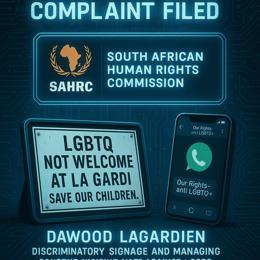Image created by AI
AfriForum Raises Concerns Over Anglicisation and Education Policy at UN Forum
AfriForum, a notable civil rights organization based in South Africa, is currently expressing its grave concerns at the seventeenth session of the United Nations (UN) Forum on Minority Issues in Geneva, Switzerland. The focus of their campaign is the potential negative outcomes stemming from recent legislative changes such as the Basic Education Laws Amendment Act 32 of 2024, also known as the Bela Act. These changes could lead to increased school overcrowding and promote a shift towards anglicisation, potentially threatening mother-language education in the region.
Alana Bailey, AfriForum’s Head of Cultural Affairs, has been vocal at the forum, discussing the reluctance of South African authorities to commit to promoting education in native languages. "The consequences of such negligence could be catastrophic not only for the Afrikaans-speaking community but also for all linguistic groups in the region", Bailey stated. This is essential for socio-economic growth according to the advocate, who also highlighted the importance of bringing these issues to international attention for greater pressure on the South African government.
At the forum, Bailey detailed the organization’s extensive work, including participation in regional and international sessions focused on education, language rights, and minority human rights. Their ongoing commitment reflects the organization's efforts since the previous meetings, as mentioned in reports to the UN Human Rights Council in 2020.
Furthermore, the session revealed a divide in perspectives: while South African government representatives denied issues such as overcrowding and a lack of mother-language education, many attending international education experts and language rights activists shared AfriForum’s concerns. These activists also expressed their eagerness to collaborate with AfriForum in fostering a more extensive network that supports quality education in one's mother tongue.
The gathering at the UN forum not only served as a platform for AfriForum to highlight the impacts of the Bela Act but also as a moment to strengthen international alliances in the fight for preserving language rights and improving educational policies.
This development prompts a crucial reflection on educational reforms, and their broader implications for cultural preservation and economic stability in Southern Africa. It underscores the need for more robust, culturally sensitive policy frameworks that can sustain and nurture the region's linguistic diversity.










